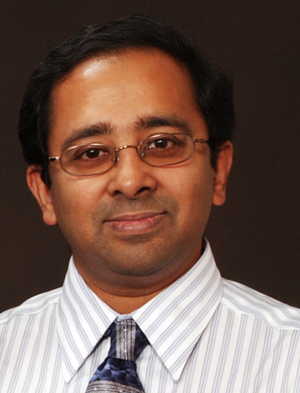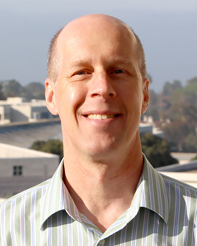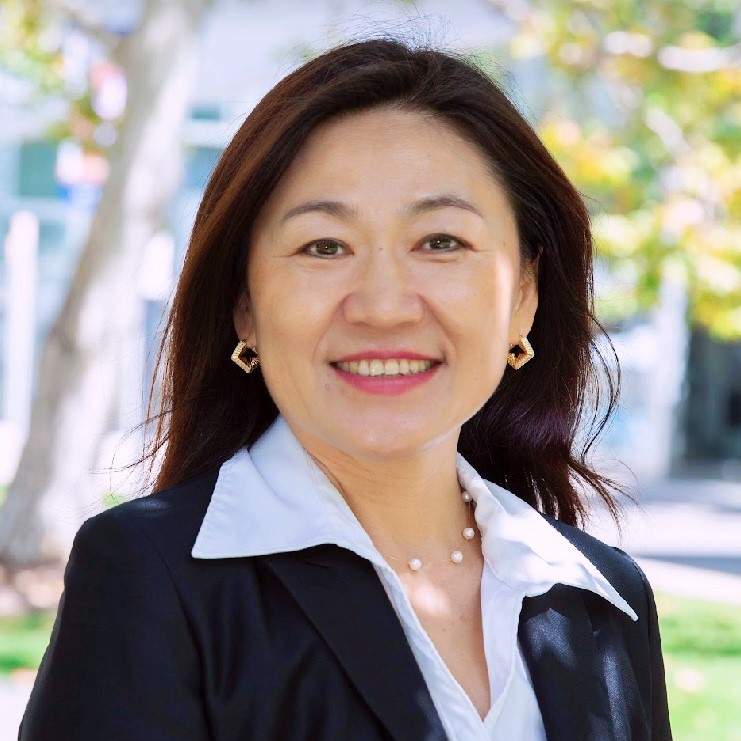Program Overview
The time and location where students will meet will vary each week. Please refer to the table below for the weekly schedule and meeting details.
| Date | Duration | Location |
| Week 1: 6/23 – 6/27 | 8:30AM – 3PM | CSE Computer Lab |
| Week 2: 6/30 – 7/3 | 10AM – 3PM | SDSC Auditorium |
| Week 3: 7/7 – 7/11 | 10AM – 3PM | UCSD School of Medicine – Directions TBA |
| Week 4: 7/14 – 7/18 | 8:30AM – 3PM | SDSC Training Room – West Wing |
Week 1: June 23rd – 27th
Computer Science
The weeklong session on machine learning will focus on three aspects: basic theoretical foundation of machine learning using statistics and the probability, foundational coding skills in Python, and the analysis of sample data sets using machine learning tools. We will also practice prompt engineering on available AI tools. Students are expected to have basic mathematical and coding skills and bring their own laptop to class.
Instructor: Paul Cao

Paul Cao is currently a continuing lecturer in the Computer Science & Engineering Department at UC San Diego. Before joining UCSD in 2015, he has been teaching in liberal arts colleges in the midwest for about 10 years. His research interests include K12 education, privacy in machine learning, and algorithms. He also coaches competitive coding programs. He is the recipient of the Jacob School of Engineering best teacher award in 2021. Paul Cao received his PhD in Electrical & Computer Engineering from Duke University.
Research Areas: AI at CSE, Awards & Accomplishments, Associated Centers, Technical Reports, CSE Fellows Program, 2026 Renovation, Graduate Student
Week 2: June 30th – July 3rd
Data Science Week
Enjoy talks from data scientists and end the week with a tour of SDSC!
June 30th Speakers

Dr. Nguyen is the Lead for Data Analytics at the San Diego Supercomputer Center (SDSC) at UC San Diego and the Associate Director for AI of the WIFIRE Lab at SDSC. Her research centers on applying deep/machine learning and data science techniques to interdisciplinary problems. She has worked in many application areas, including remote sensing, medical image analysis, biomedical text analytics, wildfire mitigation, spacecraft autonomy, and speech recognition. Prior to joining SDSC, she worked in industry on applications in machine learning, data mining, business intelligence, and data warehousing. She has also been teaching in these areas since 2009. Mai received her M.S. and Ph.D. degrees in Computer Science from UCSD, with focus on machine learning.

Dr. Dasgupta is a researcher at the San Diego Supercomputer Center, known for his innovative work in data management and security. He developed the AWESOME polystore system, which has greatly improved the way complex and varied data are integrated and analyzed. His expertise has been key in important projects like the National Data Platform (NDP) and the NOURISH project, showing his dedication to solving big societal challenges through data science. With a strong background in access control and a range of important publications, patents, and books, Dr. Dasgupta has made significant contributions to secure data processing systems. His work connects scientific research with technological advancements, which are crucial for public health and national research efforts. Additionally, Dr. Dasgupta was one of the founders of the cloud management company Kaavo Inc. Dr. Dasgupta has also worked on projects like DER Security and Quantum Data Hub and was a key member of the China Data Lab, where he set up a facility for integrating information across China to understand Chinese policy, which was well appreciated by Social scientists and Legal Scholars. He is currently involved in cutting-edge projects like COVID-19 monitoring, interdialytic hypertension, green energy, etc. He also advises various labs in the medical and engineering schools in the USA, UK, and India.
July 1st Speakers

Benjamin Smarr is an assistant professor at the Halicioğlu Data Science Institute and the Department of Bioengineering at the University of California, San Diego. As an NIH fellow at UC Berkeley he developed techniques for extracting health and performance predictors from repeated, longitudinal physiological measurements. Historically his work has focused on neuroendocrine control and women’s health, including demonstrations of pregnancy detection and outcome prediction, neural control of ovulation, and the importance of circadian rhythms in healthy in utero development. Pursuing these and other projects he has won many awards from NSF, NIH, and private organizations, and has founded relationships with patient communities such as Quantified Self. With the COVID-19 pandemic, he became the technical lead on TemPredict, a global collaboration combining physiological data, symptom reports, and diagnostic testing, seeking to build data models capable of early-onset detection, severity prediction, and recovery monitoring.

Paul Rodriguez received his PhD in Cognitive Science at University of California, San Diego (UCSD) in 1999. He spent several years doing research in neural network modeling, dynamical systems simulations, time series analysis, and statistical methods for analysis and predictions in fMRI data. He has more recently worked in data mining for health care fraud identification, and optimization of data intensive network flow models
July 2nd Speaker + Tour

Amarnath Gupta is a Research Scientist at the San Diego Supercomputer Center (SDSC) of the University of California San Diego. He leads the Advanced Query Processing Laboratory in the
Data and Knowledge Systems group at SDSC. His research interests include scientific data modeling, information integration, multimedia databases and spatiotemporal data management. Amarnath received his Bachelor of Technology from the Indian Institute of Technology, Kharagpur, a Master of Science in Biomedical Engineering from University of Texas, Arlington, and his Ph.D. (Engineering) degree in Computer Science from Jadavpur University, India. Before joining UC San Diego, he was the Chief Scientist at Virage, Inc., a startup company in multimedia information systems. Dr. Gupta has authored over 100 papers and a book on Event Modeling, holds 13 patents and is a recipient of the 2011 ACM Distinguished Scientist award

Robert Sinkovits, Ph.D. leads the scientific applications efforts at the San Diego Supercomputer Center. He has collaborated with researchers spanning many fields including physics, chemistry, astronomy, structural biology, finance, ecology, climate, immunology and the social sciences, always with an emphasis on making the most effective use of high end computing resources. Before returning to SDSC, he was the primary developer of the AUTO3DEM and IHRSR++ software packages used for solving the structures of icosahedral and helical macromolecular structures, respectively. He is the co-PI for the NSF Comet and Voyager supercomputer awards, co-PI of the XSEDE project and the co-lead of the Human Vaccines Project’s Bioinformatics Hub. He’s also an avid cyclist and mountain climber, having summited more nearly 400 peaks.
July 3rd Free Day
Happy almost 4th of July!
July 4th Holiday
There will be no session this week due to the holiday.
Week 3: July 7th – 11th
Medical Engineering
The UCSD IEM OPALS high school internship program is committed to providing pre-college students with a strong foundation in STEM. Our program emphasizes the importance of setting realistic expectations and fostering a thoughtful and rigorous research mindset. Interns will have the unique opportunity to engage with researchers, graduate students, and undergraduate students who are actively involved in interdisciplinary research at the intersection of engineering and medical science. Through this experience, interns will develop a deep understanding of the scientific principles behind the research and will be encouraged to critically analyze experimental data. By the conclusion of the internship, students will present their findings in a research talk or poster, showcasing their comprehension and analytical skills.
Our program offers exposure to a wide range of research topics. Interns may explore innovative areas such as comparing calcium responses in neurodegenerative disease cells to those in normal cells, enhancing imaging techniques for biophotonics, studying the stress responses of endothelial and nerve cells, or investigating the applications of nanotechnology at the cellular and tissue levels. Additionally, students may participate in projects that apply AI and machine learning algorithms to accelerate image processing following laser manipulations.
Coordinator: Linda Shi

Week 4: July 14th – 18th
Python Programming
This workshop introduces object oriented programming development and design using Python. Students will learn basic programming language concepts including Python syntax, input/output and control structures. Object oriented concepts will be introduced including Python classes that contain variables and methods. Students will focus on problem solving skills by program design and algorithm development using sound software engineering practices.
This course will start with the very basics, assuming that students do not have any previous Python programming experience. It does not require any other programming experience. This course will introduce basic programming concepts using the Python programming language.
Python (named after the British comedy troupe and not the snake) is an interpreted programming language originally developed by Guido van Rossum and used by companies in the Arts, Business and Education. Since its inception years ago, Python has become one of the most popular programming languages in commerce and gaming.
Instructor: Joe Pistone
Proudly powered by WordPress